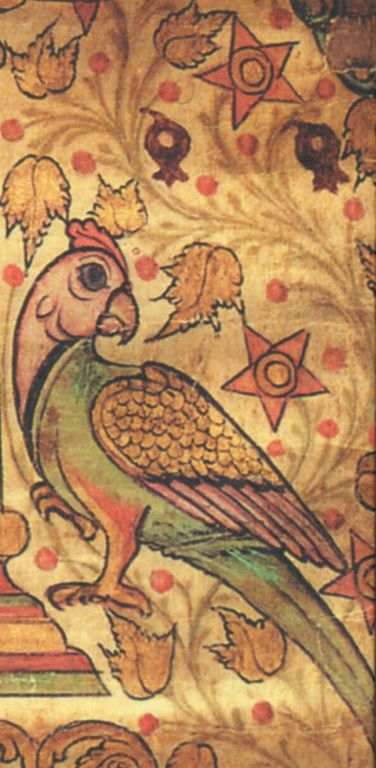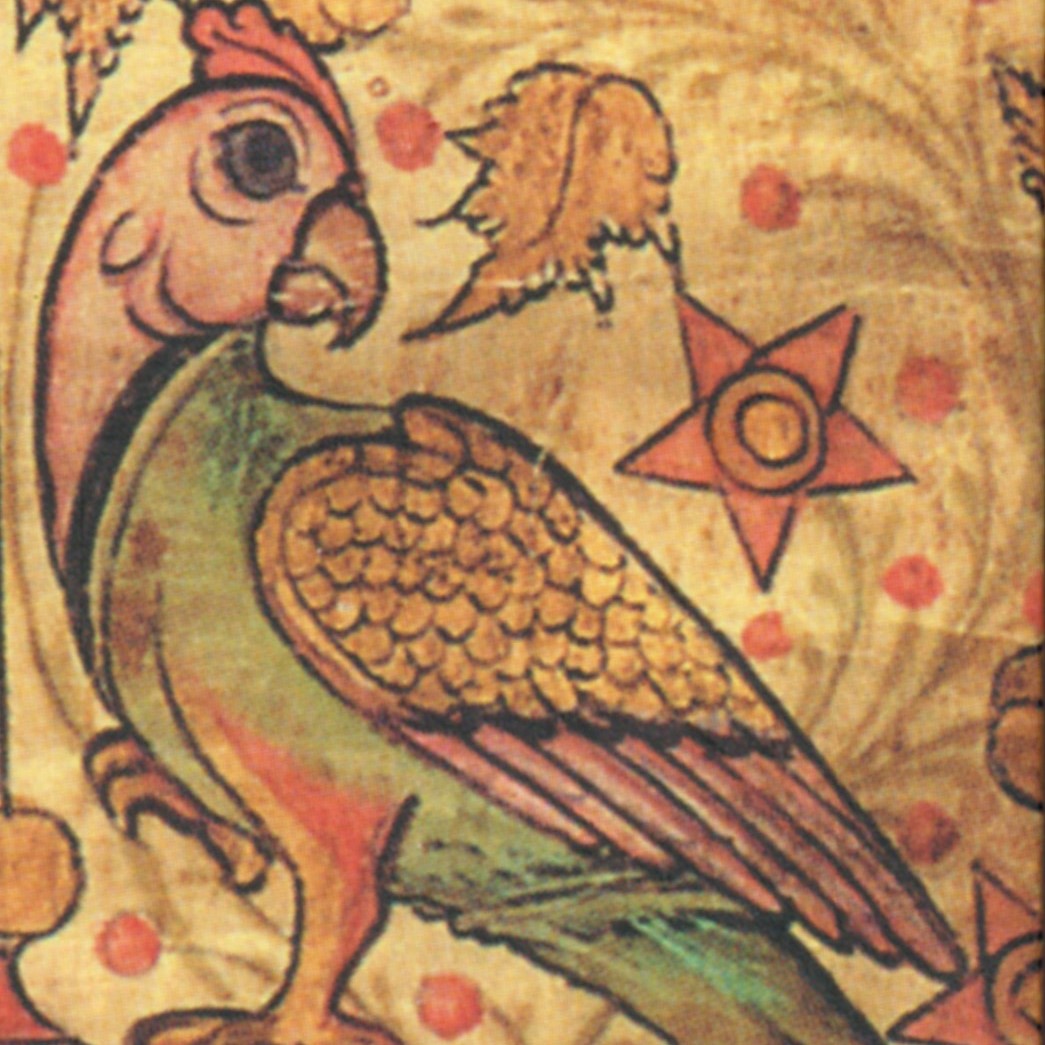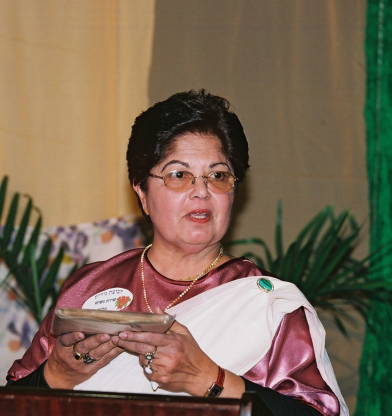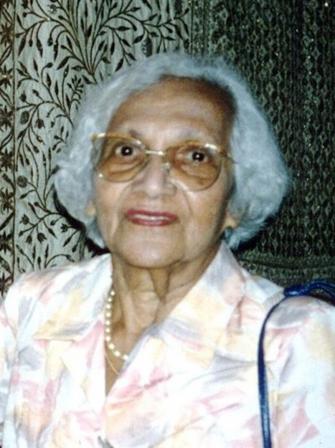1977
26. After the Bath
Sarah Cohen, Ruby S. Hallegua. Recorded by Barbara Johnson, Kochi, January 2, 1977. CD track 8; II-26.
Ěḻuneṯṯu nīrāḍi paḷḷi pokuṃba
Eṟu kutirayāyi aņayě piḍiccu
Having risen and bathed, to the paḷḷi [you] went.
A riding horse was held, in front it was held.
The announcement was made without a mistake.
The horse was mounted—climbing with strength.
The horse was mounted—clinging by hand.
The reins of the horse were held in front.
Oh, may you never ever sin!
Like a beautiful lamp may you always shine!
This short song was traditionally chanted by women who accompanied a bride as she was leaving the house to go to the synagogue for her marriage ceremony (Daniel & Johnson 1995, 185). Its meaning has not been clear to singers in recent times, as the language of the song is particularly obscure, featuring verbs without subjects and a person or persons of unspecified gender.
The performance context suggests the bride as subject of the first and the last two lines— the first referring to the required ritual bath (mikveh) on the morning of her wedding day, and the last lines as a blessing for her married life. The image of a “shining” bride, which also pervades song 28, may refer to the Kerala Jewish belief that when a bride emerges from the mikveh, her face is shining with the holiness of the Shekhinah (divine presence)—hence the custom that the bridegroom should behold her at that very moment (Toba Sofer, personal conversation with Johnson and Lane, 2003).
Venus Lane suggests that this song might have been among those performed by women who used to accompany the bride from the mikveh early in the morning. They formed a procession from one end of the Jewish street in Kochi to the other—in effect announcing to the families of all three Jewish communities that this was to be her wedding day.
We have not found any recorded memory of a horse involved in a Kerala Jewish wedding, though a bridegroom (not a bride) on a horse is associated with weddings in various other Indian communities. Zacharia (2005, 195) notes that this image of a horse may symbolize the royalty ascribed to the occasion of a wedding, and he also suggests in more general terms that the song be approached as a poetic “word picture.” “After the Bath” is found only in notebooks from Kochi—six from the Paradesi community and one from Tekkumbhagam-Kochi. The two Paradesi women who sang it in 1977 in Kochi used the same repetitive tune as for song 17, the all-purpose “Blessing Song.”







